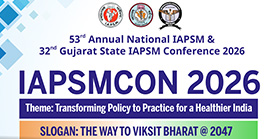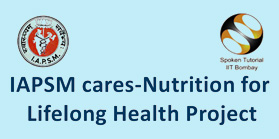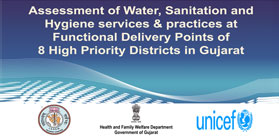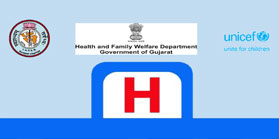About MIYCN-IAPSM:
Indian Association of Preventive and Social Medicine (IAPSM) is a national not-for-profit organization with its 6000+ member network all over India and has its members in medical colleges and government and non-government agencies focusing on community health. IAPSM leadership, particularly, Prof. Ratan Srivastava (ex-President, IAPSM) and Prof. AM Kadri (past General Secretary, IAPSM and President Elect, IAPSM) planned to set up a National Working Group exclusively dedicated to Maternal, Infant and Young Child Nutrition (MIYCN) under the ambit of IAPSM.
Objectives of the MIYCN-IAPSM National Working group are:
- 1. To promote a proactive engagement of the Community Medicine specialists to strengthen and implement the concept of MIYCN
- 2. To facilitate capacity building of the public and private healthcare providers in implementing the integration of MIYCN in health care and health research
- 3. To support the implementation of pre-service training of MIYCN among the health professional students
- 4. Advocacy with stakeholders to improve MIYCN in the country
This group was launched in the plenary session at IAPSM National conference of 2018 in Maharashtra, with a core group of eleven IAPSM members.
For more details, visit www.miycniapsm.weebly.com
Activities and reports:
A. Quality monitoring of public health and nutrition intervention delivery in the first 1000 days of life under the POSHAN ABHIYAAN
Under the quality monitoring initiative, health and nutrition services delivered by the Health and ICDS platforms during first 1000 days as prioritized by POSHAN Abhiyaan was monitored across various programs and schemes covering the following in particular:
- Maternal health and nutrition services
- IYCF services for infants & young children<2 years
- Growth monitoring, vitamin A and IFA supplementation for infants & young children<2 years
Deep-dive on some critical themes was undertaken during certain rounds of the field visits like focusing on Village Health, Sanitation and Nutrition Day (VHSND), focusing on beneficiary behaviour changes /exposure to key messages and uptake.
Phase wise implementation was carried out.
Phase I: Through July – December 2019, quality monitoring of MIYCN service delivery was undertaken in the catchment districts of Muzaffarpur (aspirational district) and Kannauj (First phase Poshan Abhiyaan district) through the Community Medicine (CM) departments of AIIMS, Patna, Bihar and Government Medical College Kannauj, UP in consultation with national and state National Health Mission (NHM) and Integrated Child Development Service (ICDS) departments.
Phase II: Based on the learnings from the pilot phase I, a second phase of the monitoring was undertaken through January-June 2020 which was expanded to other districts (esp. under Aspirational District Transformation Program) of Gaya, Sitamarhi in Bihar and Siddharthnagar, Fatehpur in UP through engagement of Anugraha Narayan Magadh Medical College, Gaya, Darbhanga Medical College, Darbhanga, Gorakhpur AIIMS and Rae Bareli AIIMS respectively.
B. Maternal, Infant and Young Child Nutrition - Integrated Curriculum for medical undergraduates
MIYCN-IAPSM supported Alive & Thrive India in developing an integrated MIYCN curriculum for undergraduate medical students. Faculty of Community Medicine, Pediatrics, and Gynecology and Obstetrics in medical colleges of Uttar Pradesh and Bihar worked together to develop this curriculum. This is aligned with the Competency based curriculum for MBBS course prescribed by the National Medical Commission.
C. Maternal, Infant and Young Child Nutrition in mother and baby friendly health services
MIYCN-IAPSM conducted a survey among private practitioners of pediatrics and gynecology and obstetrics in 15 districts covering five states across India to know about the knowledge and practices regarding MIYCN. IAPSM, IAP, and FOGSI collaborated on this with the support of Alive & Thrive India. Dr Lalit Sankhe, IAPSM was the project lead. This was carried out between 2019 to 2021. The following reports were developed based on the findings of this survey.
Download presentations related to the topics in the curriculum given above from OneDrive Folder Link:
https://onedrive.live.com/?authkey=%21AH0XrqoLqwuN3Os&id=50D5B85142405CB0%2136908&cid=50D5B85142405CB0
The faculty is advised to make appropriate modifications to adapt it to their context and also to update the content.
For more info, visit www.miycniapsm.weebly.com






